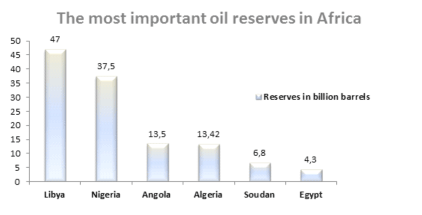|
You do not have enough permissions to delete this message
The Political Challenges Confronting post-Gaddafi Libya[Over]December 7, 2011 14:56PM 
By Naim Ameur,
The Particularity of the Libyan Revolution The success of their Tunisian and Egyptian neighbors in their peaceful revolutions encouraged the Libyan people to end the dictatorship of Colonel Muammar Gaddafi who kept his country underdeveloped and deprived of the natural resource wealth during 42 years. A retrospective approach of the situation in Libya can explain the current problems facing the political transition and the particularity of the Libyan revolution comparing to Tunisia, Egypt and the other Arab nations. Despite its large natural resources, Libya did not offer to its people good education, job opportunities, and other basic services like good quality of health care and infrastructure, even if the GDP per capita is high comparing to the other countries of North Africa. Nevertheless, billions of dollars were spent by the old regime to support terrorist groups throughout the world. In addition, the political activities were restricted to Colonel Gaddafi and his family or tribe members and his opponents were aggressively excluded. Consequently, the Libyans had two alternatives either to stay in their depressing country or to leave it for better education and lifestyle. The practices of the regime resulted in local radicalism and pushed intellectuals to go abroad. In fact, everything in Libya was exceptional like the colonel himself. The military system has been mostly based on the People's Militia. Gaddafi armed his people from the start of his governance. The Green Book, which is the document setting out the Gaddafi‘s political philosophy, provides that all classes of people must train to arms which may explain the resort of rebels to military conflict revolution turned. In fact, weapons were available with easy access. However, the armed forces in Tunisia and in Egypt were well organized, neutral and played a positive role in both revolutions. The rigidity and the oddity of the Gaddafi’s regime caused large losses, more than twenty thousand deaths, which is a big number for a small population that does not exceed 7 million, whereas Egypt, which is a big country in terms of population, has recorded less than one thousand deaths. Nevertheless, we should admit that NATO air strikes have amplified the casualties. Thus, the military intervention of the West air forces led by France in Libya represents another particularity of the Libyan case. We have not seen (at least apparently) any foreign interference in the other Arab revolutions. Many observers explained the western involvement in Libya and concluded that it is due to the strategic importance of this country in terms of energy and they strongly criticized the NATO humanitarian pretext.
The Libyan Oil Reserves Matter There are many incentives for France and other NATO countries to establish a new regime in Libya, the land that possesses 3.5% of the world oil reserves, it’s the largest in Africa. Moreover, the good-quality Libyan oil is easy to extract with a lower cost and is faster to ship seeing that Libya is very close to Europe compared to other oil-producing countries like Nigeria and the Middle East.  Source: Cia world factbook - 2010 oil reserves In fact, France was the keenest on the regime change and this could be explained by some statistics. France imported 10% of Libyan exports of oil, behind Italy, which was the largest importer with a share of 35%. However, the share of France in the Libyan oil contracts is negligible compared to Italy through its giant oil company ENI. The French oil company Total extracted only 2% of the oil produced in Libya. In addition, Gaddafi threatened, in March 2011, to replace the Western firms that left Libya by Russian, Indian, and Chinese companies and to increase the participation of the Libyan national company in the exploitation of oil to reach half of the quantities produced. In fact, after the reconciliation between the United States and Libya that led to the abolition of sanctions in 2003, the expectations of Western oil companies were big when they arrived in Libya, then their disappointment was not less important, they had only a very small percentage of the oil extracted: about 10%. When the rebels declared the establishment of the National Transitional Council (NTC) on February 27th, France quickly recognized it on March 10th as the only legitimate representative of the Libyan people. NATO supported the NTC in several forms. The NATO air forces bombed Tripoli to weaken the Gaddafi troops, and then France provided the Libyan rebels with forty tons of arms on June 29. In parallel 100 million US dollars were transferred to the NTC. These credits came from the accounts of the Gaddafi regime blocked in Western banks and grouped in a special fund dedicated to supporting the Libyan people. In return, the NTC made a secret agreement with France in order to promise 35% of new oil contracts, but both parties denied officially this, however. Nonetheless, the France’s reward is certain, given that NTC members promised the priority of oil contracts and reconstruction projects for the countries that helped them. However, it may be somewhat surprising that the Russian natural gas giant, Gazprom, remains well placed for ongoing business in Libya through its rather close and strategic partnership with the Italian energy concern, ENI. After eight months since the beginning of the protests in Benghazi, the NTC controls nearly the entirety of Libyan territory. Despite the current clashes, Gaddafi’s followers represent no significant danger. The concern now is about the increasing risk of conflict between the different political forces in post-Gaddafi Libya, namely Islamism and secular liberalism.
Potential for Conflict Among the (former-) Rebels After the disappearance of Gaddafi, the unity and harmony among the rebels become fragile due to the emergence of two dissimilar political orientations. In fact, the strong presence of Islamists in the anti-Gaddafi forces and its leadership compels liberals in the NTC to cling to the secular character of the future Libyan state. Mahmoud Jibril, the Prime Minister and the vice chairman of the NTC, has declared that “there is no place for an Islamic state in Libya’’. Jibril, however, has been deeply criticized by the Islamists for his attitude. The problems started in September when Ali Sallabi, an Islamist leader living in Qatar, condemned Mahmoud Jibril for leading a group of “extreme secularists”, to found a new authoritarian state and another era of dictatorship. However, hundreds of people have protested in Tripoli against Sallabi’s position and to support the Prime Minister Mahmoud Jibril, which confirms that the Libyan public includes liberal as well as Islamist sentiment. Moreover, Abdel-Hakim Belhaj, the commander of anti-Gaddafi forces in Tripoli, represents the Islamist trend in Libya. Despite his close relationships with al-Qaeda and Taliban leaders, Belhaj has shown a lot of moderation and tolerance. He declared that the Islamists would accept any political leader who will achieve the revolution objectives. He added that the Islamists in Libya do not represent any threat for Libya or for the West. Mustapaha Abdel Jalil, the president of the NTC, is against any ideological trend from the right or the left. He is a nationalist who tries to maintain the equilibrium between the two political extremities. Therefore, the key figures mentioned will shape the coming political landscape in the next months. The expected event is the formation of a new interim government which the NTC is delaying until the total liberation of the country. However, postponing the interim government formation raises many questions about the reasons for the delay. It seems that the nomination of new ministers for the temporary government would be a complicated task, because it is difficult to respect the representativeness of the different regions, tribes and ideologies. The NTC leaders are aware of these issues and are trying to avoid internal conflicts at this sensitive phase. Mahmoud Jebril declared that he will not be one of the interim government members and this has reduced the tensions with the Islamists. Jebril’s declaration leads us to focus once again on the upcoming scenarios of the transition.
The Anticipated Transitional Process The interim government will prepare the elections of a Constituent Assembly (CA), a body that will have 200 members, within about eight months from the time of this writing. The CA will substitute the interim government in managing the country’s affairs. The CA will form a committee to draft a new constitution for Libya, which will then be presented to the Libyan people to vote on in a referendum. One year after the adoption of the new constitution the presidential and legislative elections will be organized, that is to say about 20 months from now. This process reminds us of the political transition adopted in Tunisia where the elections of a National Constituent Assembly (CSA) are due to be held on October 23rd. The Tunisians chose a final break with the past instead of rectifying the old political system through the CSA whose members will draft a new constitution. In Egypt, the situation is different as the revolution there has granted the power to the military council which will ensure the transitional phase. The Tunisian model seems to be the closest to the ongoing Libyan process, while the challenge for stability in Libya is how to reorganize the fighters with their heavy weapons from small groups to national and unified security and military forces.
|
Comments 2